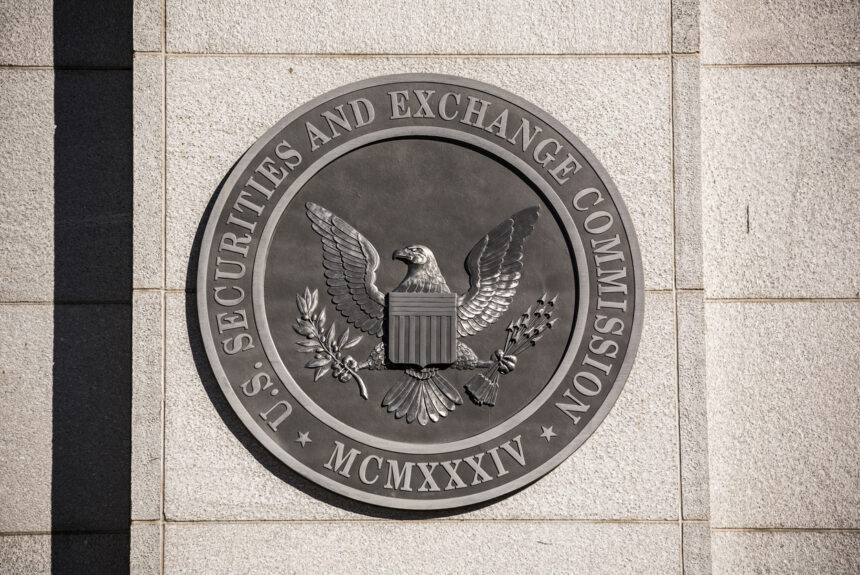After two years of contentious politicking, public opinion, and debate the Securities and Exchange Commission (SEC) has approved a landmark rule that will require public companies to report financially material climate-related risks. Companies will also be required to disclose steps taken to reduce climate risk and report losses incurred from extreme weather. Importantly, the final rule does not include a requirement for companies to disclose emissions from their supply chain and the end-use emissions from the product the company makes, known as Scope 3 emissions, which the SEC originally proposed in 2022.
>>>READ: Why Our Debt is Bad for the Climate
The Commission’s decision to leave out Scope 3 reporting will reduce the economic harm imposed on American businesses and consumers. Nevertheless, the SEC’s new rule will undoubtedly be costly for public companies, which could be passed on to consumers. Further, higher costs could harm their competitiveness or force companies to shed jobs or reduce employment opportunities.
The rulemaking has drawn ire and lawsuits from both sides of the aisle, and the fight over it is far from over. Ten states have petitioned to vacate the rule arguing that it is an overreach of the SEC’s authority. Business groups like the Chamber of Commerce have also pushed back against the rule, stating that the complicated rule would “have significant impact on businesses and their investors.” Congressional Republicans are using the Congressional Review Act to strike down the rule and hearings have been announced to understand the impacts of the regulation.
Meanwhile, environmental groups like the Sierra Club and Earthjustice are threatening to pursue legal action because they believe the final rule does not do enough to protect investors from climate risk.
Climate disclosure laws have significant impacts on businesses and consumers. One real-life example is California, which recently implemented legislation that will require Scope 3 reporting, which was modeled after similar regulations in the EU. As I recently argued in The Hill:
Quarterly reporting under the EU’s disclosure law cost companies in the bloc an average of over $150,000 in consulting fees and 150 staff days. Complying would be more expensive in the U.S., with the SEC estimating that reporting under its proposed disclosure rule would cost businesses more than $10 billion per year.
Under this regulation a farmer in Nebraska who sells his cattle to a processor in California would be required to report his operational emissions to regulators in Sacramento. As seen in Germany and the Netherlands, costly regulations for farmers are unpopular, counterproductive, and harmful to rural communities.
Instead of increasing opportunities to invest in innovative technologies, climate disclosure laws force companies to spend countless hours and money in compliance. Importantly, if climate risks are material, companies should already be reporting them.
If the European experience foreshadows the American experience, climate reporting will not provide many benefits to investors.
In the EU they have exacerbated “reporting fatigue” while businesses have pointed out that they are unclear and “of little use to investors.” Disclosures based on educated guesses, which many of these would be, could be misleading and ultimately hurt investment decisions more than reporting nothing at all…U.S. companies already publish reports on their environmental footprint, often at the request of asset managers or investors. If consumers and investors want more disclosure or sustainability, the market will provide it.
If policymakers and regulators want to meaningfully reduce emissions, they should increase opportunities for American businesses. As our Free Economies are Clean Economies report shows, there is a strong correlation between business freedom and environmental progress. Business freedom empowers companies to invest in next-generation technologies and innovative breakthroughs, rather than allocating precious resources to completing onerous paperwork. Efficient regulations and open trade allow businesses and countries to specialize and create more environmentally-friendly products. Our Climate and Freedom policy agenda provides a detailed list of pro-growth, pro-environment reforms.
>>>READ: Three Ways Immediate Expensing Helps the Environment
The SEC’s decision to exclude Scope 3 emissions was a win for businesses. However, the Commission’s complex reporting rules still add undue costs to consumers and the private sector. For meaningful environmental progress, policymakers should make it easier to do business and innovate in the United States.
The views and opinions expressed are those of the author’s and do not necessarily reflect the official policy or position of C3.
